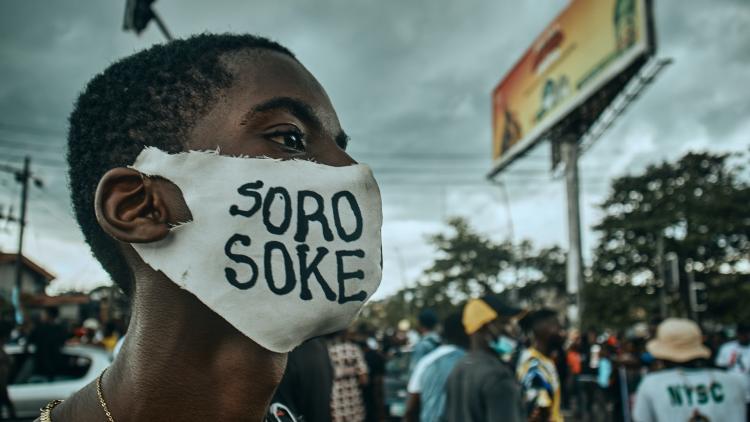Business and Human Rights in the Global Economy

Key information
- Start date
- End date
- Duration
- Term 1
- Module code
- 15PLAH079
- FHEQ Level
- 7
- Credits
- 15
- Department
- School of Law, Gender and Media
Module overview
This module considers the emergence of business and human rights as a field of practice and academic inquiry.
Constituted by jurists (broadly defined) who aim to ensure both that corporations respect human rights and victims secure remedies for corporate human rights abuses, business and human rights poses both a challenge and an opportunity. It poses a challenge because it remains at risk of maintaining a ‘trade-related, market-friendly’ human rights paradigm that does not address the relationality and systematicity of abuses being committed across the world.
It provides an opportunity in that it contains the promise of moving human rights beyond the state and cause litigation toward novel understandings of law focused on supporting the global common good, grounded in corporate practice. In so doing, business and human rights raises core questions about the relationship between corporate power, human rights, and the effectiveness of international law in regulating relationships of economic disparity in the global economy.
Understanding the field’s development requires further understanding and unpacking how traditional distinctions between bodies of law and regulation (public/private; national/international; corporate/state) are utilised to safeguard powerful interests and how these traditional distinctions can yet be navigated to bring about change.
This course provides students with the opportunity to both map the emergence of the field and to supplement their cartographic effort with critical engagement in the field’s limitations and prospects. It combines an interdisciplinary, critical, intersectional approach to business and to human rights with an in-depth legal analysis of the institutional mechanisms and strategies employed to prevent and remedy corporate human rights abuse.
It will include a clinical component in which students are asked to advise a corporate client on a matter pertaining to their human rights due diligence processes. This examination will provide students with an opportunity to explore the efficacy of law’s response to these situations and the strategies used by actors working in the field.
Workload
- Weekly 2-hour seminar
Scope and syllabus
Part 1 – Introduces students to the theories informing the field and the historical contexts in which these debates are operating
- Introduction/overview of field: key sources, theories and debates
- Narratives of historical antecedents (Part I)
- Narratives of historical antecedents (Part II)
Part 2 – Provides students with the doctrinal basis for business and human rights practice and introduces them to real-life problems
- The UN Guiding Principles on Business & Human Rights
- Business & Human Rights Clinical Component
Part 3 – Discusses in-depth the business and human rights field through the lens of its primary actors
- The duty to protect: state-sanctioned initiatives to ensure the protection against corporate human rights abuse (domestic institutionalisation; extra-territorial jurisdiction; parent company liabilility; intergovernmental regulatory initiatives)
- The responsibility to respect: the corporate responsibility to respect human rights and the obligation to ‘do no harm’
- Access to remedy
- Part 4 – Looking to the future
- The Business & Human Rights Treaty
- Business & Human Rights Clinical Component: presentations in response to problem in Week 5.
Method of assessment
- Coursework: 80% (4000 words)
- Presentation: 20% (15 minutes per group)
Suggested reading
- John Gerard Ruggie, Just Business (Norton 2013)
- Karl Polanyi, The Great Transformation [1944] (Beacon Press, 2001)
- Cesar Rodriguez Garavito (ed) Business and Human Rights: Beyond the End of the Beginning (Cambridge University Press, 2018)
- Surya Deva and David Bilchitz (eds) Building a Treaty on Business & Human Rights (Cambridge University Press, 2018)
- Surya Deva and David Bilchitz, Human Rights Obligations of Business: Beyond the Corporate Responsibility to Respect (Cambridge University Press, 2013)
- Shareen Hertel, Tethered Fates: Companies, Communities and Human Rights (Oxford University Press, 2019)
- Upendra Baxi, The Future of Human Rights (Oxford University Press, 2012)
- Daniel Drache and Leslie A. Jacobs, Linking Global Trade and Human Rights: New Policy Space in Hard Economic Times (Cambridge University Press, 2015)
- Muthucumaraswamy Sornarajah, The International Law on Foreign Investment (CUP, 4th Edn, 2017)
- Markos Karavias, Corporate Obligations Under International Law (Oxford University Press 2013)
Disclaimer
Important notice regarding changes to programmes and modules.




